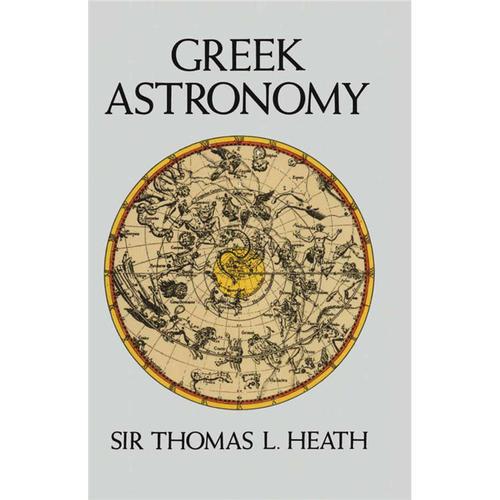Greek Astronomy
- 作者
- 出版社 Dover Publications
- 出版时间 2011年11月 第1版
- ISBN 9780486266206
- 定价 120.00
内容简介
AstronomyasasciencebeganwiththeIonianphilosophers,withwhomGreekphilosophyandmathematicsalsobegan.WhiletheEgyptiansandBabylonianshadaccomplishedmuchofastronomicalworth,itremainedfortheunrivalledspeculativegeniusoftheGreeks,inparticular,theirmathematicalgenius,tolaythefoundationsofthetruescienceofastronomy.Inthisclassicstudy,anotedscholardiscussesinluciddetailthespecificadvancesmadebytheGreeks,manyofwhoseideasanticipatedthediscoveriesofmodernastronomy.Pythagoras,bornatSamosabout572B.C.,wasprobablythefirsttoholdthattheearthissphericalinshape,whilehislaterfollowersanticipatedCopernicuswiththethen-startlinghypothesisthattheearthwasnotthecenteroftheuniversebutaplanetliketheothers.HeraclidesofPontus(c.388–315B.C.),apupilofPlato,declaredthattheapparentdailyrotationoftheheavenlybodiesisdue,nottoarotationoftheheavenlysphereaboutanaxisthroughthecenteroftheearth,buttotherotationoftheearthitselfarounditsownaxis.Secondly,HeraclidesdiscoveredthatVenusandMercuryrevolvearoundthesunlikesatellites.PerhapsthegreatestastronomerofantiquitywasHipparchus,whoflourishedbetween161and126B.C.Hecompiledacatalogoffixedstarstothenumber850ormore,madegreatimprovementsintheinstrumentsusedforastronomicalobservations,anddiscoveredtheprecessionoftheequinoxes,amongotheraccomplishments.TheastronomyofHipparchustakesitsdefinitiveformintheSyntaxis(commonlycalledtheAlmagest)ofPtolemy,writtenaboutA.D.150,whichheldthefielduntilthetimeofCopernicus.TheextraordinaryachievementsoftheseandmanymoreGreektheoristsaregivenfullcoverageinthiseruditeaccount,whichblendsexceptionalclaritywithareadablestyletoproduceaworkthatisnotonlyindispensableforastronomersandhistoriansofsciencebuteasilyaccessibletoscience-mindedlayreaders.
— END —
